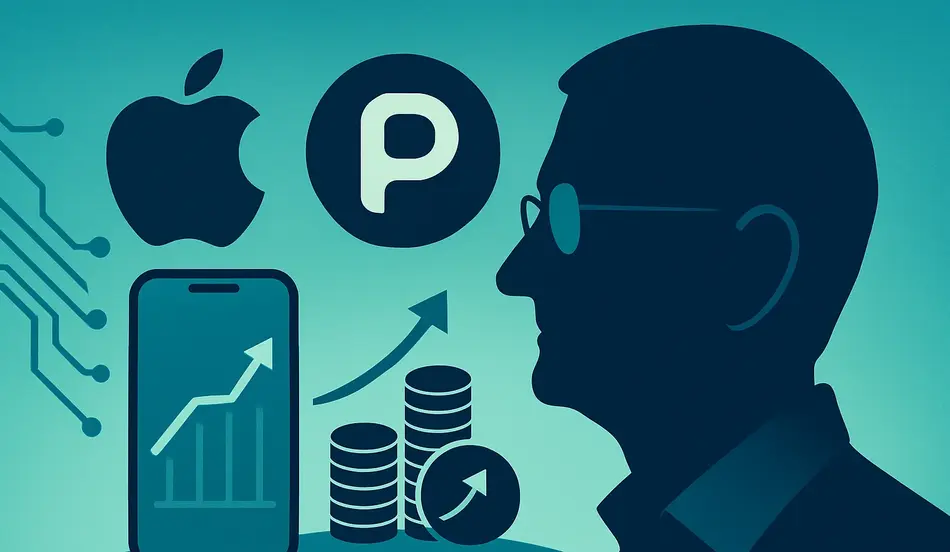A Ticking Clock for Apple’s AI Future
Apple has the biggest consumer tech install base in the world — over 1.5 billion active iPhones — but in the AI race, it’s starting to look like the company is missing the Formula 1 start signal. As Microsoft, Google, and Amazon pour billions into AI partnerships and in-house development, Cupertino’s progress feels slow and cautious.
That’s why the recent buzz around a potential Apple Perplexity AI acquisition is so intriguing. Industry insiders suggest Apple could spend up to $19 billion on the fast-rising AI search and assistant startup — and it may need to act within the next 4–6 months to stay competitive.
Why Perplexity AI?
Founded by Aravind Srinivas, a computer science prodigy from India who later studied at Berkeley, Perplexity AI has become one of the fastest-growing names in generative AI. Known for combining chat-based answers with cited sources, Perplexity offers a cleaner, more trustworthy AI experience compared to some rivals.
The company has positioned itself as an AI-native search engine — a direct challenge to Google and Microsoft’s Bing Chat — but with a leaner, more focused development model. Its algorithms, models, and developer talent could give Apple the AI leap forward that its internal teams have struggled to deliver.
Apple’s AI Problem
Apple’s AI capabilities, while solid in niche areas like on-device processing and privacy-centric features, have lagged in the conversational, search, and multimodal arenas that define today’s AI landscape.
While Siri was once revolutionary, it now feels dated next to OpenAI’s ChatGPT, Anthropic’s Claude, or even Google’s Gemini. Multiple reports suggest Apple’s AI talent pool has thinned in recent years, with key engineers moving to more aggressive AI companies.
Acquiring Perplexity would instantly inject fresh technology and culture into Apple’s ecosystem, without waiting years for in-house teams to catch up.
The $19 Billion Question
Valued at $18–19 billion, Perplexity AI would be one of the largest acquisitions in Apple’s history — and a departure from its usual strategy of smaller, under-the-radar buys.
Apple is famously reluctant to make large purchases, preferring to build rather than buy. But as one analyst put it, “You cannot wait on the treadmill at 2.5 speed when your competitors are in a race car.”
This deal would be about more than just tech — it would be a statement acquisition, signaling to investors, customers, and rivals that Apple is ready to play offense in AI.
Stay Ahead in the AI Talent Race
Apple’s $19B AI move shows the future belongs to those who secure top AI talent now—don’t fall behind.
Post a Job Now →Why Now?
Several factors are creating urgency:
- Competitive Pressure: Microsoft’s deep ties to OpenAI and Google’s Gemini integration are raising the AI bar.
- Install Base Advantage: Apple’s devices are ready-made distribution channels for AI features.
- Tariff Clarity: Recent signals that Apple can “play nice” with the Trump administration have reduced policy uncertainty.
- Leadership Optics: Tim Cook’s innovation track record has been questioned — a bold acquisition could change the narrative.
Industry voices believe the window for this move is 4–6 months, before other partnerships or antitrust concerns make it harder.
Integration Without Assimilation
One risk of the Apple Perplexity AI acquisition is that Perplexity could lose its startup speed and innovative edge if fully absorbed into Cupertino’s slower corporate processes.
Experts suggest the ideal approach would be to keep Perplexity semi-independent, much like Apple did with Beats in its early years. This would preserve its culture and allow its engineers to work free from the heavy bureaucracy that can slow large companies.
The Tim Cook Factor
Is Tim Cook the right CEO to take Apple into the AI age? Many analysts say yes — but with the caveat that new leadership under him is essential. Apple’s “innovation DNA” has taken hits from both talent loss and an overly cautious approach.
To make AI a true growth driver, Apple needs fresh voices at the senior level who can take calculated risks while aligning with Apple’s privacy and design ethos.
Market & Regulatory Hurdles
Even if Apple decides to move forward, the antitrust climate in the U.S. and Europe could pose challenges. Regulators are scrutinizing big tech acquisitions more aggressively than ever, especially those involving high-growth AI firms.
That said, Apple has historically had fewer antitrust clashes compared to Google or Meta, potentially giving it a smoother approval path — if it can argue the deal promotes competition against AI leaders.
What Happens if Apple Waits?
If Apple delays, several scenarios could play out:
- Perplexity partners with another tech giant like Amazon or Meta.
- Valuation rises, making the acquisition even costlier.
- Apple’s AI gap widens, forcing it into a defensive posture in future AI rollouts.
Given the pace of AI advancement, “wait and see” could be the riskiest move of all.
Conclusion
The Apple Perplexity AI acquisition wouldn’t just be about adding a new product or talent pool. It would be about signaling a strategic shift — from cautious observer to active AI leader.
With $80B+ in annual free cash flow, the means are there. The question is whether Apple’s leadership has the will to take the leap.
FAQs About the Apple Perplexity AI Acquisition
1. Why would Apple buy Perplexity AI instead of building its own AI model?
Building a competitive AI model from scratch could take years, while Perplexity offers proven technology, a strong team, and a market-ready product.
2. How much could Apple pay for Perplexity AI?
Estimates suggest $18–19 billion, making it one of Apple’s largest acquisitions ever.
3. Would Perplexity be integrated into Siri?
Likely yes — Perplexity’s conversational search could power a next-generation Siri, but experts suggest keeping the startup semi-independent.
4. Could antitrust regulators block the deal?
It’s possible, but Apple’s relatively clean antitrust history may give it an edge in arguing the acquisition promotes competition.




